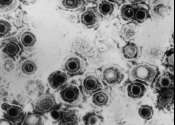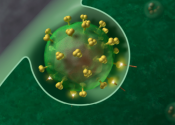Can a combination immune therapy reduce genital herpes outbreaks?
Yale investigators have shown that the combination of a vaccine and a medicated cream is a promising strategy to dramatically reduce the recurrence of genital herpes. Their study, co-led by researchers at the University of ...
Aug 1, 2019
0
59







